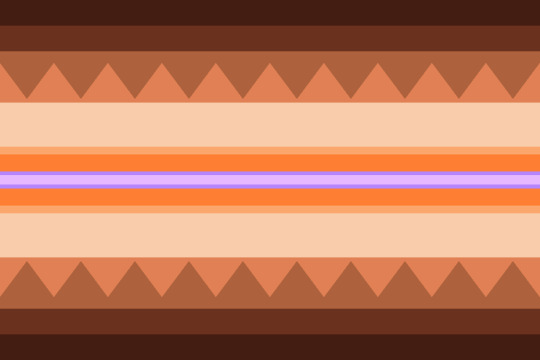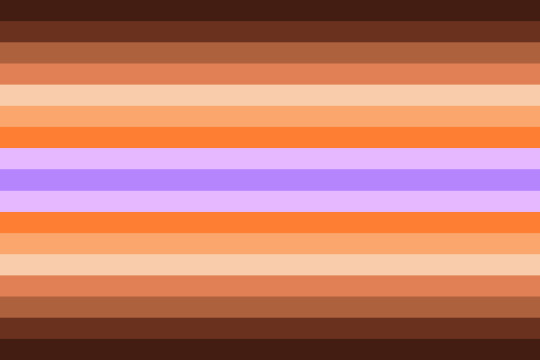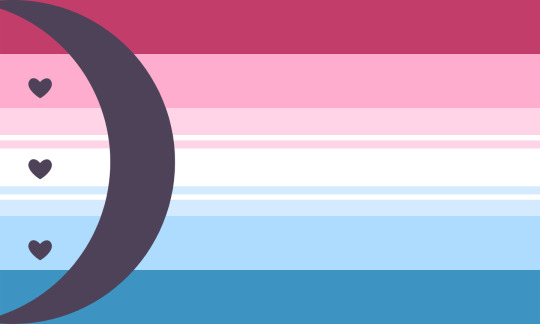#ian suffix
Text

!!~EVEIAN~!!
A gender associated with the nighttime and magic.

!!~FEM EVEIAN~!!
A feminine gender associated with the nighttime and magic.

!!~MASC EVEIAN~!!
A masculine gender associated with the nighttime and magic.
30 notes
·
View notes
Photo

[[IMAGE ID: A five striped flag. It goes as follows, muted brown, muted light brown, muted beige, muted desaturated light green, muted desaturated dark green.]]
UNARCHIVICAN
A gender related to the vastness of music, and how much of it has been lost to time or otherwise not archived properly.
for day four of @bored-coiner‘s coining event, theme was “Incomprehensible” :^)
#suffix was supposed to be -ica + -ian but it kinda just turned into can#unarchivican#mogai#mogai coining#xenogender#musica section#the Incomprehensible part is supposed to be how much music is out there#whether it's fully produced with a professional team or an mp3 file on a teenagers phone#and additionally; how much of it has just been erased from existence#local bands going defunct; the discs catching on fire; people deleting their embarrassing mp3 files#very gender
22 notes
·
View notes
Text
Mando’a demonyms: -ad or -ii?
Some Mando’a speakers have headcanoned that the -ii suffix is pejorative (probably because it appears in words like kaminii and aruetii, and a Kaminoan is kaminii but a Mandalorian is mando’ad). But it also appears in neutral/positive words like parjii and prudii, so it could also be analysed as purely neutral agent suffix. Here’s my attempt at a more nuanced interpretation that incorporates both views (and also gives us twice as many words, yay):
The difference between the two forms of demonyms is one of perspective/belonging and degree of emotional affect.
Linguistically, X-ii is more of a neutral agent (“X-ian”), X-ad could be translated as “child of X” as a noun (the most common usage) or also as “having the characteristics of X” or “having the characteristic quality of X” as an adjective (-ad also appears as an adjectival suffix, this is my current working translation for that sense). The neutral adjective would be one with -la/-yc suffix.
In practice
So let’s have some real world examples! Let’s say that I’m born in Sweden (which I’ve translated as Svarya; Svarye would be more faithful phonetic transliteration, but the -e ending kind of looks like a plural and I like the -a ending for place names better… it’s a work in progress. let’s just go with it for the sake of the example). I’m more likely to call myself a svaryad and my neighbours in Finland (which I’ve transliterated as Suumi) suumiise—a purely neutral connotation and used also in news etc. However, if I was an immigration-critical right wing swede, I might call myself and other Sweden-born swedes svaryade but naturalised immigrants svaryiise—a more questionable connotation (but it also could be neutral in some cases: if I was a Finnish-born Swedish citizen who still held sentimental ties to their Finnish identity, I might call myself suumad and svaryii). If I was a racist piece of shit, I might call all dark skinned swedes svaryiise—a pejorative connotation.
A native Japanese might call themselves a nihonad, but western immigrants living in Japan nihonii (somewhat similar to “gaijin”). That would be a whole different context from my Swedish example, with whole another set of connotations. Words for white people or western immigrants are found in many languages and with many connotations, some pejorative, some not. So the implications of the choice between -ad and -ii would entirely depend on who was speaking, where and to whom.
Another situation where you might use -ad instead of -ii is if you wanted to invoke a sense of national pride or unity. So for example, the Finnish right wing nationalist party True Finns would be translated as Haat’Suum’ade. You would also be 600% more likely to see an -ad ending in news around Independence Day, and if there were Ukrainian news in Mando’a, there would be nary a single ukrainii to be seen and instead every Ukrainian would be ukrainad, but all Russians would be rusii. Otherwise newsreaders either give everyone -ii (or in national news -ad for their countrymen and -ii for everyone else), except -ad for peoples (in plural—svaryade would be “the Swedish people”), indigenous people, and national heroes.
For adjectives, if you were talking about Swedish businesses for example, you would use svaryala (or should it be svaryc, hmm…)—a neutral connotation. Svaryad as an adjective would be “having the essential characteristics of swedenness”, so for example, lagom is a svaryad quality and fika is a svaryad custom.
Many words for many Mandalorians
In the Mandalore sector, there would probably be a term with -ii suffix for civic citizens/residents of Mandalore who are not Mandalorians (i.e. have not taken the creed). Possibly mandalasii (from Manda’lase, Mandalorian space—mandalii would probably be Mandallian).
So let’s say you’re addressing a New Mandalorian: you have a whole range of different terms with different connotations and levels of insult at your use. You could call them:
mando’ad, “a mandalorian”, implying that you don’t see the creed as a non-negotiable part of Mandalorian identity and are probably a New Mandalorian or a sympathiser yourself;
evaar’ad, if you held some sympathies toward them or were at least polite enough to call them by the name they call themselves (even if only to their face);
naak’tsadii, lit. pacifist, a member of peace movement (naak’tsad), mostly a Kalevalan/Sundarian term, implying that you’re probably also either a Kalevalan/Sundarian or share those politics;
arakaanii, a Northern/Keldabian word for a pacifist (lit. “against war”), implying that you’re not one yourself;
arakaanad, a little kinder term for a pacifist, more akin to “a child of pacifism” or “a descendant of the pacifist movement” (the dictionary term would be arakaanii, swapping it for arakaanad would soften it—but since -ad is also for children, it could also come off as patronising depending on context!);
mandalasii, if you held the centrist opinion (one of the many) that you’re willing to tolerate the pacifists, but if they won’t follow the Resol’nare, then they should also accept the same rights, responsibilities and restrictions as other residents of Mandalore who are not Mandalorians. The degree of insult would be highly context-dependent—one thing to call them that during peace talks, another in a cantina;
ka’gahtii, “southerner”, a slang term for a person living on Mandalore's southern continent, a Sundarian, or a Kalevalan immigrant or a person of Kalevalan background living on Mandalore—mostly negative connotations implying Sundarian political leanings which you don’t share;
aruetii, “outsider”, if you wanted to be insulting and highlight their ties to the Republic;
dar’manda, “no longer Mandalorian”, which is one of the worst insults out there, if you wanted to highlight them giving up their traditions and say that they’re not even a Mandalorian anymore.
A droid is a droid is a droid
Several Mando’a speakers, myself among them, have headcanoned that the word for droid should be besad, “child of metal”, not beskar’ad, since beskar is specifically culturally important Mandalorian steel. As an aside, I think the prototypical metal for a spacefaring civilisation should be steel, not iron (unless it’s some yet unknown super metal, but let’s go with steel for best usability to actual speakers today). Iron would be the special case of steel, so perhaps it has a different name altogether or it’s called something like ne’tra bes/netra’bes, “black steel”. So my modified dictionary definitions are (shortened here for convenience):
besad (or bes’ad)—droid
bes—metal, steel
beskar—Mandalorian steel
Anyway.
The standard, neutral word for droid is besad. If you call a droid besii, you’re specifically choosing to not use the standard word, and the connotation is pejorative, implying a lack of sentience. Besii is a backformation from besad, switching the -ad suffix (in this context, the English equivalent would be -man) for -ii (which in demonyms can be either neutral or pejorative, but commonly used for outsider groups)—the implication is that droids are not "us", not people. But you could also call a particularly gutsy droid beskar’ad (looking at you R2D2)—implying they’ve got the droid equivalent of mandokar. Or you might perhaps use beskar’ad for an armoured battle droid, because of the word’s similarity to beskaryc, armoured.
In conclusion
If this sounds complicated, well that’s because languages are complicated. Languages are systems of words and metaphors. Words aren’t defined by words in other languages, but by their relationships to other words in the same language. So it’s the choice of which word to use that matters as much if not more as the word itself or its etymology. I hope I’ve caught some of that realism here.
So there you have it: -ii can be neutral or pejorative depending on the context; -ad is empathetic and highlights a sense of belonging. Now go out there and be exactly as insulting as you mean to!
p.s. Yes, I have a whole fat ass table of transliterated country names and derived demonyms and adjectives etc. which I came up when I was laid down with a flu. It’s a work in progress figuring out how to transliterate different languages with different phonologies and different writing systems into Mando’a. I’ll get it out there someday.
#mando’a#mandoa#mando’a language#mandalorians#mandalorian culture#star wars meta#mando’a linguistics#ranah talks mando’a#mando'a#meta: mandalorians#mando’a morphology
53 notes
·
View notes
Text
List of Half Foot inspired* prefixes and suffixes, excluding surnames
*based on my basic understanding of the naming convention. and also the canon ones :p
All under the cut, its a long list. Also some fun full names that could TECHNICALLY be half foot names
Feel free to comment/reblog with your own!
prefixes
puck
mel
trill
tam
puck
nim
mep
mag
may
fler
fleur
mei
chil
chip
eve
rev
rue
roan
zap
gar
tick
rass
thack
keg
fritz
chock
mund
pitch
snif
nit
huck
dell
flynn
good
kish
kipp
kipper
bix
binx
skip
maze
jive
dan
clem
soot
kemp
moll
bram
brom
pip
zip
merry
scot
suffixes
jack
eve
nick
james
my
kash
bea
lynn
lee
ash
dot
patch
jona
aster
luke
joy
ive
bill
bert
blue
breck
flynn
hyde
jame
jo
lewis
merle
mirl
maud
vic
vick
dan
murph
duke
jove
beck
frank
lark
gale
link
dell
sue
lou
patti
tom
chuck
ness
dave
don
tim
john
jake
beth
lisa
liza
bob
rob
mitch
pete
ian
bonus names
rhettlink (i mean come on)
charlee bigs
aliceyn chains
nicknack
kipperlily (i mean its RIGHT there)
bugsnax (listen.)
grandpa cheez
petzig
timney
lugnut torks
timhor tons
slimjim
#dungeon meshi#delicious in dungeon#half foot#ryoko kui#half foot names#dm oc#dungeon meshi ocs#half foot dungeon meshi#dunmeshi#dunmeshi names
15 notes
·
View notes
Text







flag id: six flags with 6 stripes. the top left flag's stripes are purple, light green, very light sky blue, cream, light golden yellow, and golden yellow. the top right flag's stripes are purple, light pinkish-red, cream, very light green, faded sky blue, and soft blue.
the middle left flag's stripes are dark pink, purple, bright purple, light green, blue, and light sky blue. the middle right flag's stripes are dark pink, purple, bright purple, cream, blue, and very light red.
the bottom left flag's stripes are light purple-pink, purple, very dark pink, light green, very light sky blue, and white. the bottom right flag's stripes are very light red, purple, very dark pink, light green, cream, and white. end id.
banner id: a 1600x200 teal banner with the words ‘please read my dni before interacting. those on my / dni may still use my terms, so do not recoin them.’ in large white text in the center. the text takes up two lines, split at the slash. end id.
adonian | maedian
adonion | maedion
adonien | maedien
adonian: gay/gai mln
maedian: gay/gai wln
adonion: straight/strayt mln
maedion: straight/strayt wln
adonien: diamoric mln
maedien: diamoric wln
[pt: adonian: gay/gai mln
maedian: gay/gai wln
adonion: straight/strayt mln
maedion: straight/strayt wln
adonien: diamoric mln
maedien: diamoric wln. end pt]
gay/gai, straight/strayt, and diamoric adonic/mln and maedic/wln terms for anon!
since these are similar to torian, trixian, torion, trixion, torien, and trixien, the flags and terms are based on those. the flags combine the adonic and maedic flags' colors with the gai, strayt, and diamoric flags' colors, and the terms are 'adon' and 'maed' suffixed with 'ian', 'ion', and 'ien'!
tags: @radiomogai | dni link
#adonian#maedian#adonion#maedion#adonien#maedien#adonic#maedic#mln#wln#gay#gai#straight#strayt#diamoric#my flags#my terms#new flag#new term#mogai flag#mogai term#mogai
34 notes
·
View notes
Note
did you know that in dnd elvish the -ion name suffix is specifically the gender neutral version of that suffix. masculine is -ian and feminine is -ianna. thought you might appreciate that bit of trivia.
I did not, but I'm obsessed with this now thank you!
17 notes
·
View notes
Text
I know none of us really post to this blog a whole lot anymore (sorry for that, life just got in the way), but I’ve got something to say and this has the biggest platform of all my MOGAI/LIOM related accounts, so here I am. I should also say that I don’t exactly know how to word this post. Normally, when any of us have gotten involved in these situations in the past, there’s already been some amount of criticism of said thing before hand, so it was easy to just say “hey, [x]/[x] is wrong/what have you” and leave it at that. This time, though, I’ve never seen anyone else talk about this, and if they have, it’s very clearly not a known thing at the moment. I haven’t even seen any posts from the coiner of this suffix about it. So it feels (to me, at least) that I should do a little more and I’m not sure what that ‘more’ is/should be.
I should also say, I don’t intend this to be a callout of any particular user/users or to cause a witch hunt or anything like that. This is just an information post to maybe avoid another -coric situation, where it it’s become so consistently misused that it almost feels like there won’t ever be a point where it completely stops. Please don’t be mean to anyone who does the thing I’m about to talk about or anything like that. If anyone would like to kindly bring their attention to the issue, go for it, but don’t be anything less than 100% civil.
With all that out of the way, the post:
There’s veen a lot of misuse of the suffix -ica, recently, and I figured someone should clear that up. And since this account has more than 1000 followers and I’ve noticed it, I figured it should be me.
-ica is a suffix coined on November 19, 2020, by now inactive user Genderstalgia. It, along with -ical and -musica, were coined as suffixes specifically for Musicagenders. That phrase was actually used verbatim in the coining post if anyone would like to fact check me on it. It’s not a general-use, uncoined suffix, like -ic or -ian to name a few, or something like -cenic that was coing to be used for pretty much anything. It, along with its counterparts, have a very explicit, relatively narrow, meaning.
Despite that, there’s been a surge of misuse of it over the past few months to a year (the archive on here and on the site are a good bit behind, so I’m not completely up to date). Thankfully, it hasn’t gotten as vad as -coric or even -comfic, but it’s definitely an issue. To the extent that we’ve created a list for them on Genderpedia and one that has more than double digit pages, here. That page isn’t linked so anyone can go harass the coiners with terms listed there or to drive traffic to the site, it’s just to demonstrate that there is a good amount of terms that are a part of this issue. In addition to that, there are multiple terms that we haven’t archived for whatever reason (mostly just time and fluctuating dis/interest).
I don’t know what specifically I can encourage anyone do outside of a few things. Anyone who has or thinks they might have terms that misuse -ica, or any other suffix for that matter, just go check! And, if you find them, just find a different suffix! There are coined things like -cenic and, in some specific cases, -aesic, -corian, -comfin, etc. (although those last ones do have specific definitions that might not fit, so check those too) and non-coined, general things, like -ic and -ian, or even a currently-unused look-alike like -eca, -yca, or something else like that!
Also, I’d generally recommend checking to see if any kind of suffix/term ending you’ve about to use has been coined and if it would apply. I know that’s crazy hard, because of how many there are and have been coined, and scattered information, but there are some sources that can help. We have an incomplete list of affixes, here, there’s the suffixes carrd, here, and there’s the account Coiningaffixes, here.
I know, looking at the coric/comfic/etc situations, there’s no way this one post will fix everything. It’s just unrealistic to thing that. But hopefully the reach this account has and, hopefully, general encouragement of checking for coinings and being willing to change term names will do something to start to make a dent. In all of these situations!
Thank you for reading, especially this long of a post from a practically inactive account, and have a good night! - Admin Grey
#mogai#liom#xenogender#musicagender#mogai gender#mogai coining#liom coining#mogai community#liom community#xenogender community#musicgender
52 notes
·
View notes
Text


aneastian - (from an(imal) and (b)east, with the suffix -ian) [an-nee-stee-an]
an umbrella term for identities centered around bestial traits, controlling or taming animal-like creatures, being animalistic oneself, feeling nonhuman or feeling connected to nonhumanity, and shades of orange. can be connected to the umbrella terms feruvel, instinctant, florauna, wilderic, or furrean, but isn't inherently related to them. coined with the beastkeeping coven from the owl house in mind, but isn't connected to it inherently.
aneastinity - equivalent of masculinity/femininity
astia - an aneastian person
ASTiN - aneastian-in-nature
aneastic - gender alignment
metazoamor - (aneastian4aneastian, astiaLastian) an anaestian person being attracted to another anaestian person. (from metazoa; a synonym for the kingdom animalia, and amor; meaning love)
transaestian - transitioning into aneastinity
astian - an aneastic gender
@radiomogai @neopronouns @imawanokiwaaa @revenant-coining
#aneastian#gender umbrella#mogai coining#mogai identity#mogai gender#gender coining#identity coining#tech.png#image id in alt text
38 notes
·
View notes
Text
COLSEEPITATIAN

a flag with 7 stripes, colored deep blue, dark blue, dark turquoise, turquoise, dark aqua, aqua, dark purple. from the top of the bottom stripe is a graphic of a stream of bubbles in white that extends to the top of the flag.
colseepitatian !
a gender related to cold seep communities, including life forms and habitat characteristics.
col + seep + it + at + ian
from "cold seep" and "habitat" and the suffix "ian"
requested by @bees--on--toast, coined by us
id by me
#⭘ my terms#coining#mogai#mogaireal#mogaisafe#mogai coining#mogai flag#liom#liomreal#liomsafe#liom coining#liom flag
23 notes
·
View notes
Text

fuck it we finally posting this . cutely shares my highly specific label thing with you
astramorian
someone who takes solace or comfort in the moon and has an intense longing for it , because it cannot cause pain , unlike people. this shapes a large part of who they are (gender, attraction, i don't really know. meaning is in the eye of the beholder)
etymology: the astr- is from astrum, a latin word meaning star, heavenly body, or a constellation. the amor is from the latin word meaning love, and the -ian is a suffix denoting "belonging to or relating to"
#mogai#mogai community#mogai safe#???????????????????????#not doing this again#this sat in my drafts forever#fuck it we ball
13 notes
·
View notes
Text
Faimershiftian
[PT: Faimershiftian].

[ID: A rectangular flag with pastel violet background and two groups of two stripes each near the left and right end of the flag and extending out from bottom to near top and vice versa respectfully. The colors of these stripes are: cashmere and orange salmon in the left group and fountain blue and purple haze in the right group. End ID].
Faimershiftian: A gender that relates to being a shapeshifter who shifts between being a fairy on the land and a mermaid in the sea.
Etymology: fai(ry) + mer(maid) + (shape)shift(er) + suffix "-ian".

[ID: A thin line divider. On either end there is a sun symbol. At the center, the divider is cut off by text reading "Team Sun". All of the image is in yellow outlined with bright orange, then copper brown. End ID].
2023CoinFight Revenge Attack on @neopronouns! Worth 11 points! (7th Chain Attack Bonus Included)
@kiruliom @radiomogai
#faimershiftian#2023coinfight#coinfight sun#gender coining#neogender coining#neongender#mogai#mogai coining#mogai term#mogai gender#liom#liom coining#liom term#liom gender#mod domijoyce
19 notes
·
View notes
Text
What is Charles’s Job?

[ID: a screenshot of a Tumblr tag. It reads, “#also im so sorry this is a pet peeve of mine when people talk about it: theologians do NOT follow blind faith.” End ID.]
I saw this tag on my most recent post, and it is correct! Theologians study religions and learn about their tenets, much like a scientist learns about the natural world. But Charles is NOT a theologian. The Mudstone Abyss transcripts specifically call him a “theologist.” The two words are technically synonyms, so it could be the case that Charles does the same job a theologian does. The only difference is the suffix.
The suffix -ian means “belonging or relating to”, “adhering to or following” or “having a certain profession.” All of these definitions separate the person from their work. A librarian is of one library, a Christian is a follower of their religion. The suffix modifies nouns and adjectives. Basically, a noun is a thing, while an adjective describes that thing. It’s a little less tangible, you could say.
But the suffix -ist means “a person who holds certain principles or doctrines.” In this way, it seems a lot more personal. More of the self. A scientist holds a belief in their doctrine of... well, science. And Charles is the opposite of Carlos, meaning he is the opposite of a scientist. He is a theologist.
SO what is Charles’s job? Is it his job to study and document religions? Is it his job to work within his specific religion? We know he’s a theocrat, so he’s clearly not interested in examining the fallibility of religion. Is he interested in controlling people through religion, the way that the University of What It Is controls people through science? Was it a totally arbitrary decision to refer to him as “Charles the Theologist” instead of “Charles the Theologian?” I have no idea. But now I’m thinking about it.
26 notes
·
View notes
Text
Ghoian or Spirian
Ghoian or Spirian, or Gho4Gho, GH4GH, Ghost4Ghost, etc. is a term for ghosts (kin, hearted, stelic, etc.) that love other ghosts, exclusively or not.
this flag was made using the colours from this (link) ghostkin flag!
Etymology:
Gho - Ghost
Spir
Ian - a suffix with many meanings, but in this case means ‘interested in‘.
Pronunciation:
/ɡəʊ/ - /iɑn/
/ˈspɪɹ/ - /iɑn/
goh - ee (or eye) an
spear - ee (or eye) an



requested by: no one
#━🌙+.✧┊ coining#ghoian#gh4gh#gho4gho#ghost4ghost#alterhuman#otherkin#constelic#otherhearted#copinglink#ghostkin#spiritkin#spirian
48 notes
·
View notes
Text
Suffix discourse has reached TikTok. The controversy: diminutives, plurals, and demonyms. Specifically, diminutives, plurals, and demonyms being used to create nouns.
The claim? Words like tr**ny and bl**kie or transgenders and bl**ks aren't offensive. They're simply short/affectionate or plural terms for trans people and black people. And their use is no different than saying "Italians" or "Christians." Never mind the fact that -ian is a demonym used to denote members of a group, often the inhabitants of a particular country. And never mind the fact that the other words are literally slurs.
If someone tries to pull this, remember that this is purposeful. They are trying to excuse their use of slurs and offensive terms through some pseudo-intellectual "it's just a plural" and "it's just a diminutive" or "it's no different than a demonym." Through the (pseudo-) intellectualization of their use of slurs, they hope to avoid accountability when they use them. If they can freely use them without accountability, then there is no need to use dog whistles anymore. They can hate without cover and others will go to bat for them by repeating those dumb-ass arguments like, "it's just a diminutive." Slurs are the shortcut of discrimination. They both reflect and spread discrimination, and their use intends to strip a target group of power (to "put them in their place;" to derogate).
This is an attempt to erase wrongs committed by hegemonic powers against minority groups. Make no mistake, slurs are weapons. There is no justifying or excusing their use.
#I know we had this conversation about a year ago#over the use of 'bl**ks' in fanfiction#and @clonehub had to fend off racists#saying it's 'just a word'#They can all go fuck themselves
25 notes
·
View notes
Text


[first flag ID: A rectangular flag with 7 equally sized horizontal stripes. The colours are very low contrast and very dark. From top to bottom, the colours are dark yellow, dark orange, dark red, a reddish-black, grey, a lighter reddish-grey, and another lighter grey. End first flag ID]
[second flag ID: A rectangular flag with 7 equally sized horizontal stripes. From top to bottom, the colours are a slightly dark yellow, a slightly dark orange, a slightly dark red, a slightly-red black, dark grey, a lighter grey, and a mid grey. End second flag ID]
dianettic
definition
a gender that feels deceiving, dark, unsettling, and dignified.
if that makes sense
flag
the dark yellow/orange represents unsettlement (if that's a word). the red represents dignification. the black represents darkness, and the grey represents deception.
etymology
(it is a bit all over the place)
[di]anettic: dignification
[d]i[a]nettic: darkness
[d]ian[e]ttic: deception
dia[n][ett]ic: unsettlement
ic: gender suffix
for day 7 of @epikulupu's 1k coining event, with the prompt "lies"
i seem to like dark flags
14/10/2022 - long awaited higher contrast flag is finally here after silently judging myself over the old flag for a month. present vexillologist me is very loudly judging past vexillologist me
#dianettic#my terms#my flags#term coining#coining post#flag post#pride flag#lgbt#lgbtq#lgbtqia#queer#pride#mogai#liom#coining event#flaqqs#flag id patients
82 notes
·
View notes
Photo


spasleeblancolorian: a gender related to sleepycore, dreamcore, soft blankets, blue aesthetics, purple aesthetics, spacecore, and galaxycore
for anon! the top three stripes represent purple aesthetics, the middle represents blankets, the bottom three represent blue aesthetics, and all of the outer six stripes are inspired by the sleepycoric, dreamcoric, spacecoric, and galaxycorian flags. the term combines ‘spa’ from ‘space’, ‘slee’ from ‘sleep’, ‘blan’ from ‘blanket’, ‘color’, + ‘ian’ for similarity to the ‘corian’ suffix!
flag id: a flag with 7 stripes. in order, they are dark purple, purple, soft purple, very light red-orange, cyan, soft blue, and dark blue. end id.
dni transcript here
#spasleeblancolorian#aesthetigender#xenogender#my flags#my terms#new flag#new term#mogai flag#mogai term#mogai
73 notes
·
View notes